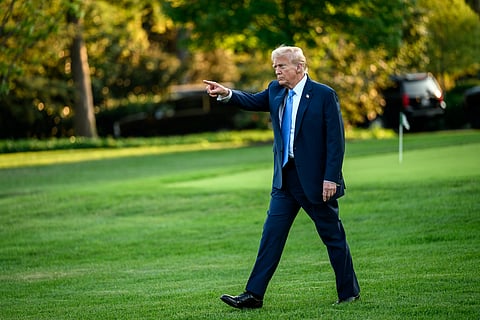Trump Cancels Xi Meeting Over China's Rare Earth Export Controls
President Donald Trump has announced he will not proceed with a planned meeting with Chinese President Xi Jinping, citing Beijing's recent tightening of rare earth export rules as a hostile act.
The decision, shared via social media, signals a potential unraveling of the fragile trade truce established earlier this year between the world's two largest economies.
Trump's remarks followed China's expansion of export controls on Thursday, which included adding five new elements to its restricted list and imposing extra scrutiny on semiconductor users.
These measures also encompassed dozens of refining technologies and required foreign producers using Chinese materials to adhere to Beijing's regulations.
China dominates the global supply, producing over 90 percent of the world's processed rare earths and magnets, which are essential for electric vehicles, smartphones, aircraft engines, and military radars.
In a post on Truth Social, Trump described China's actions as an attempt to hold the global economy hostage.
He stated there was "no reason" to meet Xi at the upcoming Asia-Pacific Economic Cooperation summit in South Korea, originally scheduled in about three weeks.
Beijing had not publicly confirmed the summit meeting.
Trump further warned of a "massive" increase in tariffs on Chinese imports, a move that could reignite the tit-for-tat trade war paused in May through arduous diplomacy.
That agreement had led to the removal of triple-digit tariffs and subsequent discussions on issues like TikTok, agricultural purchases, advanced technology trade, and rare earth supplies.
Compounding the tensions, China has launched a monopoly investigation into U.S. tech giant Qualcomm, potentially hindering its acquisition of another chipmaker.
Additionally, Beijing announced new port fees for ships linked to the U.S., including those owned or operated by American firms.
Market Turmoil in the Aftermath
Financial markets reacted swiftly to Trump's broadside.
The S&P 500 index fell by approximately 1.4 to 2 percent in late morning trade in New York, while investors sought safe havens in U.S. Treasury securities and gold, weakening the U.S. dollar against other currencies.

